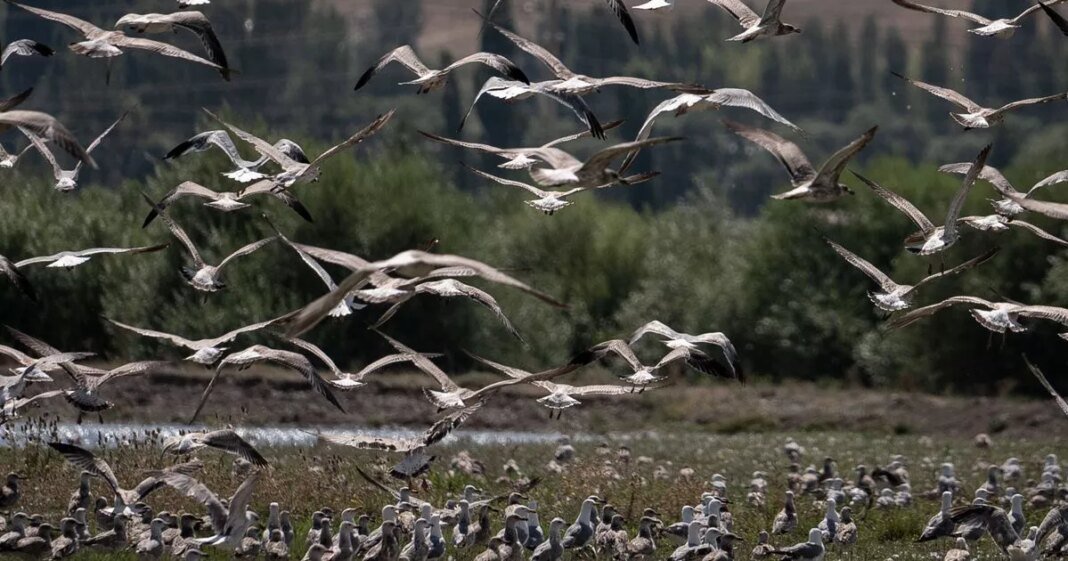The global community is on high alert as birds exhibit concerning behaviors worldwide, posing risks to the delicate balance of nature, food sources, and medicinal plants.
Observations by scientists reveal disruptions in the typical migration patterns of birds in the United States due to the impact of global warming on temperature cues that traditionally guide their movement away from colder climates.
Andrew Farnsworth, a researcher at Cornell University, issued a cautionary statement highlighting the potential consequences of altered migration patterns, warning that numerous bird species could face extinction, ultimately disrupting ecosystems and natural harmony.
Birds play a vital role in ecosystems by pollinating plants and controlling pest populations, with around five percent of plant species essential for human food and medicine relying on birds for pollination.
Farnsworth, an expert in migration ecology, attributes the behavioral changes in birds to rising temperatures in regions like the Arctic and northern forests, as well as other climate change-related factors such as wildfires that pose threats to bird populations.
The National Audubon Society has forecasted that 389 bird species in North America are at risk of extinction within the next five decades as a result of environmental changes.
The warming climate has led to confusion in seasonal transitions, causing birds in warmer regions to depart their nests earlier or later than usual, resulting in mismatches with the availability of food sources like insects or plants at breeding or feeding grounds.
Consequently, birds face challenges such as starvation, inadequate shelter, and difficulty in finding mates, leading to declining populations as fewer birds survive harsh winter conditions.
Several bird species in the U.S., including the Black-throated Blue Warbler, Red Knot, and Swainson’s Thrush, have already experienced negative impacts from these behavioral shifts.
Research by Audubon indicates declining populations of Black-throated Blue Warblers in the U.S. due to climate change effects, resulting in food scarcity post-migration.
Red Knot populations, a shorebird species, have decreased by approximately 75% as warming Arctic temperatures disrupt their breeding areas and rising sea levels reduce their coastal feeding habitats.
The Swainson’s Thrush, migrating from Canada and Alaska to Central and South America, is facing habitat loss due to wildfires and warming forests along its migration route, affecting nesting and resting sites across various states.
Farnsworth emphasized the challenge for birds that struggle to adapt to climate change, while researchers cautioned against feeding birds as it may deter them from migrating and attract predators that threaten their survival.
REWRITE_BLOCKED: The original content contains sensitive information related to the practices and policies of the website.

